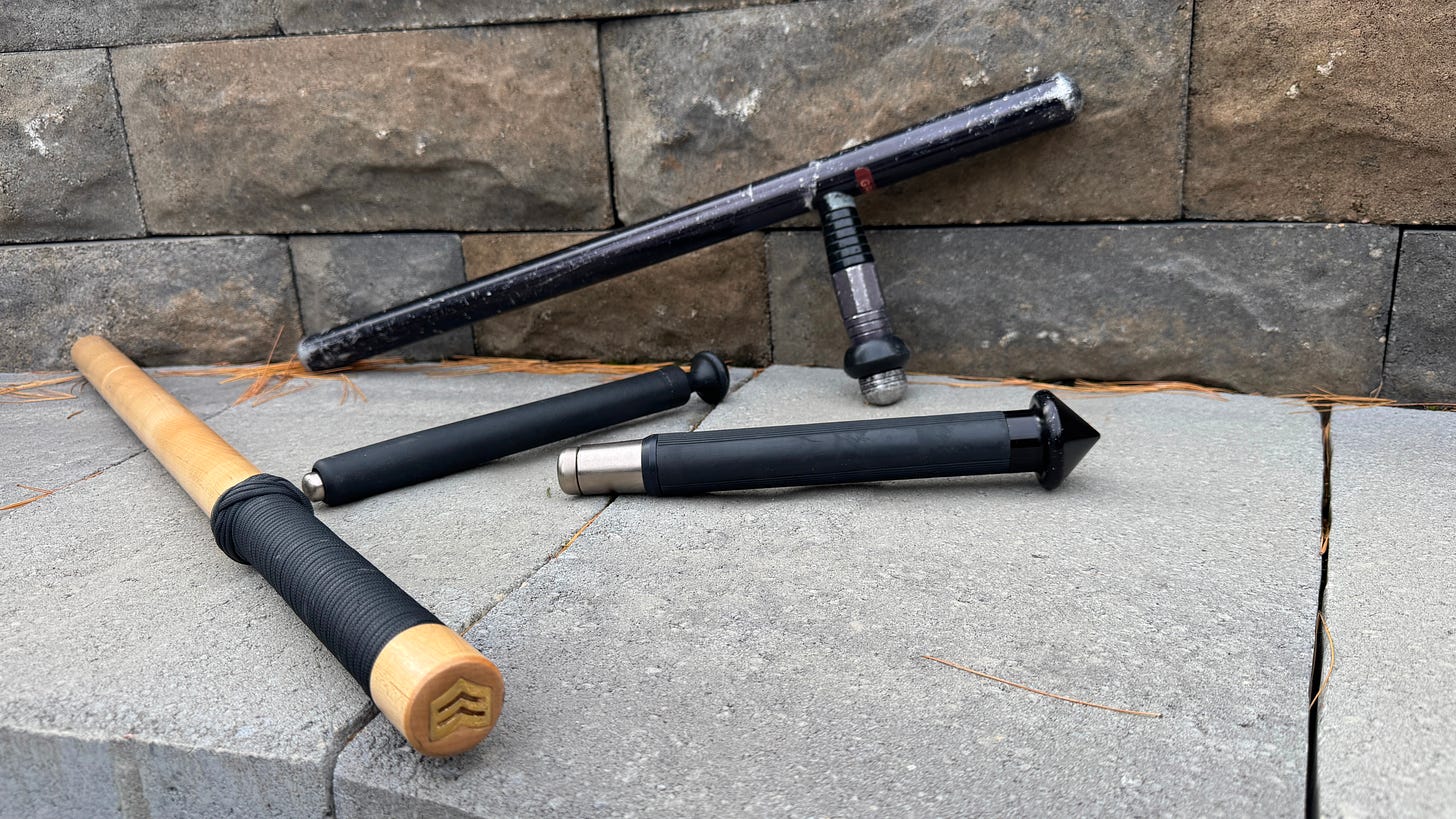For many Californians, self-defense options have been limited by some of the strictest weapons laws in the nation. However, a recent case from the Ninth Circuit Court offers a potential alternative for those seeking lawful means of personal protection. On February 23, 2024, Judge Roger T. Benitez, often hailed as a staunch defender of Second Amendment rights, issued a ruling in Fouts v. Bonta that struck down California Penal Code Section 22210’s prohibition on billy clubs. This case has significant implications for church safety teams and individual Californians alike.
Let’s break down what this decision means, why it matters, and how it can be applied to church security.

The Case: Fouts v. Bonta
In this landmark ruling, Judge Benitez issued a permanent injunction against the enforcement of Penal Code Section 22210, specifically as it applies to billy clubs. Historically, the law made it illegal to manufacture, import, sell, or even possess billy clubs in California. However, Judge Benitez ruled that such restrictions violate the Second Amendment, which guarantees the right to bear arms—not just firearms, but also other less-lethal tools for self-defense.
Drawing on the framework established by the Supreme Court’s decision in New York State Rifle & Pistol Ass’n v. Bruen, Judge Benitez conducted a historical analysis of the Second Amendment’s original intent. He concluded that billy clubs, like firearms, are part of a rich American tradition of self-defense tools and thus warrant constitutional protection.
The court specifically noted that items such as table legs or broken golf club shafts, which can serve similar defensive purposes, fall under this category of protected tools. The ruling makes it clear: the Second Amendment encompasses more than just firearms.
Why This Ruling Matters
This decision comes at a time when many Californians are actively seeking lawful alternatives to firearms for self-protection. For those barred from owning firearms or preferring non-lethal options, billy clubs now present a legal avenue for defense. Judge Benitez’s ruling affirms that:
Less-lethal tools have constitutional protection: The court expanded the interpretation of the Second Amendment to include weapons beyond firearms, such as billy clubs and stun guns.
Historical precedent supports the ruling: The court found no significant historical tradition of banning billy clubs during the formative years of American lawmaking.
The ruling is currently effective: The California Attorney General’s office has acknowledged that enforcement of Penal Code Section 22210 as it relates to billy clubs is now permanently enjoined.
However, it’s important to note that this decision has been appealed to the Ninth Circuit. While the appeal is “administratively closed” pending the resolution of related cases, the injunction remains in effect for now.
Implications for Church Safety Teams
For church safety ministries, this ruling offers an opportunity to explore billy clubs as an additional layer of defense. While firearms remain the most effective tool in countering serious threats, billy clubs can serve as a less-lethal option in situations where deadly force isn’t justified. Here’s how church safety teams can incorporate this ruling into their practices:
Evaluate Less-Lethal Options: Churches with safety teams should assess whether billy clubs are a practical addition to their security measures. These tools may be particularly useful for de-escalation or as a visible deterrent.
Legal Review: Consult with legal counsel to ensure that any policies involving billy clubs align with state and local laws. While this ruling legalizes their possession, the use of billy clubs must still adhere to self-defense laws.
Training and Deployment: Equip team members with proper training in the use of billy clubs to minimize liability and ensure effective use during incidents.
A Word of Caution
While the ruling is a victory for Second Amendment advocates, it’s important to stay informed about future legal developments. The decision has been appealed and could be revisited pending the outcomes of related cases, such as Duncan v. Bonta (addressing large-capacity magazines) and Teter v. Lopez (addressing butterfly knives). For now, the ruling is effective, but it’s critical to monitor any changes that may arise.
Final Thoughts
The Fouts v. Bonta decision represents a significant shift in California’s legal landscape regarding self-defense tools. For church safety teams, this ruling offers a new way to protect congregations while remaining compliant with the law.
Stay vigilant and informed, and always consider how emerging case law impacts your strategies for securing your church. I’ll continue to monitor this case and provide updates as they become available.






There goes the neighborhood.
I assume this also includes ASP expanding batons also?